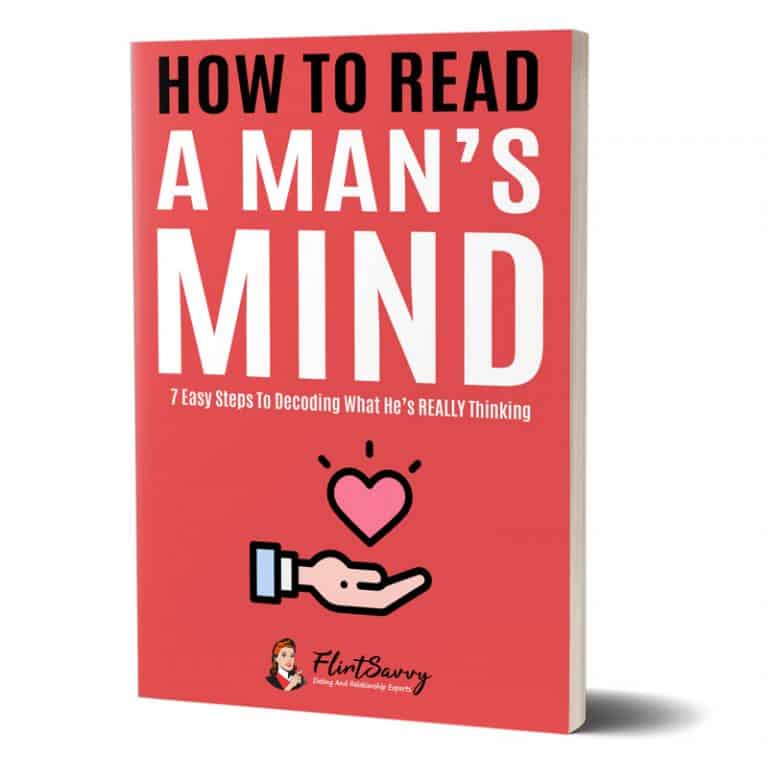Words can be powerful tools for expressing love, affection, and appreciation in a relationship. However, they can also be used as weapons to hurt and harm.
When your husband uses hurtful words against you, it can leave you feeling overwhelmed, emotionally exhausted, and mentally scarred. Verbal abuse is just as damaging to a woman’s spirit as physical abuse, and it can be difficult to figure out how to get over hurtful words in a relationship.
In this article, we’ll explore some ways to cope with hurtful words from your husband and how to build a loving relationship based on open and healthy communication.
When Your Husband Hurts You With Words?
It’s important to remember that hurtful words from your husband are not your fault. Your husband is responsible for his own actions and words, and it’s important for him to take responsibility for any hurtful behavior.
If your husband often says hurtful things to you out of the blue, or if there is a pattern of such behavior, try to put yourself in his shoes by assessing the reason behind the negative emotion. Don’t take his words literally. In many cases, it is not about you, rather it’s his own frustrations that caused him to lash out. While this doesn’t give him an excuse, it pays to let him know you are there to listen and stay. Getting to the root of your husband’s triggers is extremely important for resolving issues and putting an end to a vicious cycle like saying hurtful things to each other.
It’s also important to talk to your husband and let him know how his words hurt you when he is in a calm mood. Analyze his words and their impact on you – which part did you get most hurt by and which part are you willing to overlook. However, hold off on your response and do not act immediately when your partner uses harsh and hurtful words against you.
If you’re currently dealing with verbal abuse in your relationship, you might benefit from speaking with a counselor about your situation. It can help you uncover and understand the damage that’s being done to you.
Recognizing Verbal Abuse In Your Relationship
Verbal abuse can take many forms and can occur in any relationship, not just romantic ones. It’s important to recognize the signs of verbal abuse so that you can take action to protect yourself.
One common sign of verbal abuse is being called names or being shouted at on a regular basis. If arguments always resort to yelling and the use of aggressive phrases, this is a sign that your communication with your partner is anything but healthy. In a healthy relationship, partners step away from an argument or try to talk through the issue. In a verbally abusive relationship, the abuser will yell until they get what they want.
Another sign of verbal abuse is mental abuse, which includes being talked down to, receiving back-handed compliments, and blurred lines between insults and compliments. The abusive partner would also refuse to acknowledge your strengths and belittle your accomplishments. They don’t care if it is done in private or in a group of people. They will do it in the hopes of crushing your self-esteem so that you are more dependent upon them.
If you’ve been on the receiving end of repeated outbursts from your partner, you know how devastating it is to be verbally abused. When hurtful scenarios keep recurring, it may seem like the only sane and obvious thing to do is to get away from that abusive person permanently. However, it’s important to note that there are ways to reduce blow-ups and bring peace back into your relationship.
It’s also important to remember that emotional and verbal abuse may be a sign that physical abuse will follow. Signs of physical abuse may include visible injuries such as black eyes, bruises, rope marks, or welts, broken bones, untreated injuries that are healing at different stages, physical signs of restraint such as marks on the neck or wrists, and sudden changes in behavior.
If you’re experiencing emotional or verbal abuse from your husband or partner, it’s important to seek help and support. You are not alone, and safety is possible. Remember that you deserve love and respect in your relationships.
Understanding The Impact Of Hurtful Words
Hurtful words can have a significant impact on any relationship, including marriage. When playful teasing turns into cruel and manipulative behavior, it can be devastating to hear hurtful words from someone you love dearly. It’s easy to match that emotion and be angry as well, but reacting with anger will never lead to a fruitful conversation. Anger is usually the reason why people say hurtful things, and it’s important to understand where those words are coming from.
Ninety-nine percent of the time, hurtful words are the manifestations of intense emotions such as anger, stress from work, frustrations in life, and even hunger. When someone is already angry before getting into an argument, it’s easy to lose control and say the meanest things. Often, when someone says hurtful things during a big fight, they have been hiding and saving those words and needed a conflict to have the guts to say them.
Numerous studies show that expressing anger can cause deterioration in any relationship. A study published in The Canadian Journal of Human Sexuality found that the expression of anger has a direct correlation to married couples’ sexual satisfaction. Subsequently, a Japanese study on non-expression of anger is said to lead to dissatisfaction and deterioration of the relationship. While you are free to feel whatever you feel, the important thing is when expressing displeasure, to do it in a way that will not hurt your partner.
It’s important to recognize that hurtful words can have a negative impact and begin to affect intimacy. The residual effects of the harsh and aggressive words begin to cause more anger and disconnect in the relationship. Difficult people weren’t born that way. Generally, the way they respond is the way they have learned to respond to the world to keep themselves safe.
Forgiving your spouse when they talk to you with hurtful words can be helpful, especially if you don’t think they mean what they say. This can help you move forward and will be beneficial for the relationship overall.
Coping Strategies For Dealing With Verbal Abuse From Your Husband
Dealing with verbal abuse from your husband can be emotionally draining and challenging. Here are some coping strategies that can help you deal with the situation:
1. Take a deep breath and try to regulate your emotional reaction to their abuse. Remind yourself that this isn’t because of you, it’s because of them. Try to ask them to stop.
2. Seek support from friends and family members who can offer you emotional support during this difficult time.
3. Consider seeking professional help from a therapist or counselor who can help you learn coping strategies and provide you with the necessary tools to deal with the situation.
4. Set boundaries with your partner and let them know what kind of behavior is unacceptable. Be firm in your stance and stick to your boundaries.
5. Practice self-care activities like exercise, meditation, or yoga to help reduce stress and anxiety.
6. Keep a journal where you can write down your thoughts and feelings about the situation. This can help you process your emotions and gain clarity on how to move forward.
7. If the verbal abuse continues, consider seeking legal assistance or filing for divorce if necessary.
Remember, you deserve to be treated with respect and kindness in your relationship. Don’t let verbal abuse from your husband diminish your self-worth or happiness. Take action to protect yourself, seek support, and prioritize your well-being.
Effective Communication Techniques For Building A Stronger Marriage
Effective communication is the foundation of any successful marriage. It helps build a deeper emotional connection with your partner, fosters trust and understanding, and ensures both partners feel heard and valued. Here are some effective communication techniques for building a stronger marriage:
1. Participate with sincerity and honesty: A conversation is between two people, so it’s important to actively participate with sincerity and honesty. Avoid giving the silent treatment or being indifferent to your partner’s words. When your partner is talking to you, talk back without any hidden motives. Communicate with transparency and honesty, and ask questions for clarity.
2. Active listening: One of the most crucial aspects of effective communication is active listening. When your partner speaks, give them your full attention and avoid interrupting or multitasking. Show interest in their words by asking questions and reflecting on their words. By doing this, you can better understand their perspective and feelings.
3. Communicate clearly and respectfully: Be clear and direct about your thoughts and feelings when communicating with your partner. Use “I” statements instead of “you” statements, which can be accusatory. Avoid blaming or criticizing your partner, and express yourself respectfully, even if you’re upset.
4. Be open and honest: Honesty is essential in a healthy marriage. Avoid keeping secrets or withholding information from your partner, as this can erode trust and intimacy. Instead, be open and honest about your thoughts, feelings, and needs.
5. Practice empathy: Empathy is the ability to understand and share the feelings of another person. It’s a crucial aspect of effective communication, especially in marriage. Try to put yourself in your partner’s shoes and see things from their perspective. This can help you understand their feelings and react more compassionately.
6. Take responsibility for your actions: If you make a mistake or hurt your partner’s feelings, take responsibility for your actions. Apologize sincerely, and make an effort to rectify the situation. This shows your partner that you value their feelings and will work to improve the relationship.
By following these effective communication techniques for building a stronger marriage, you can improve your communication skills and build a stronger, more fulfilling relationship with your partner. Remember, communication is a two-way street, and it takes effort from both partners to make it work. By working together and communicating openly and honestly, you can overcome any obstacle and create a lifetime of love and happiness.
Seeking Professional Help For Verbal Abuse In Your Relationship.
If you’re experiencing verbal abuse in your relationship, seeking professional help can be a crucial step towards healing and moving forward. A counselor can provide a safe and non-judgmental space for you to talk about your experiences and feelings, and help you develop coping strategies to deal with the abuse.
When choosing a counselor, it’s important to find someone who specializes in working with individuals who have experienced verbal abuse. Look for someone who is trained in trauma-informed therapy, as verbal abuse can be traumatic and have long-lasting effects on your mental health.
During counseling sessions, you may explore the root causes of the abuse and work on developing communication skills and boundaries with your partner. A counselor can also help you develop a safety plan if you’re at risk of physical harm.
Remember that seeking help is a sign of strength, not weakness. You deserve to live a life free from verbal abuse, and a counselor can help you get there. If you’re unsure where to start, reach out to a domestic violence hotline or advocacy organization for support and resources.






